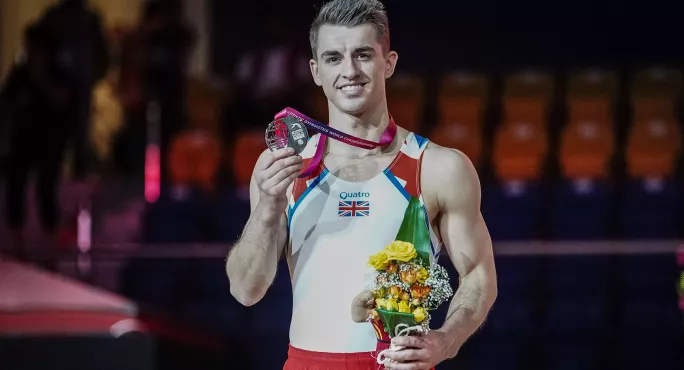I wasn’t born into gymnastics. There are no grainy home videos of me, aged 2, balancing on a bench or jumping off the sofa doing a routine. In fact, it wasn’t until I was seven-years-old, and a friend at my local swimming club suggested I try it, that I ever really focused on gymnastics at all.
But it’s safe to say that from then on, my love for the sport took hold. Almost every single day since then, I’ve been in training or competitions, fitting it alongside my schooling and working with my coaches and with the support of my family.
News: BTEC results: Entries rise despite doubts over future
Background: Funding axed for more than 160 level 3 qualifications
Opinon: Lord Baker: 'Preserve choice' by saving BTECs
BTEC 'was a no-brainer'
When I was 16, I took a BTEC in sport. I knew at that point that I wanted to do gymnastics professionally. But I also knew that I needed a qualification that would help me understand the sporting industry better, as well as allowing me to learn in a way that suited me. For me, doing a BTEC was a no-brainer. I learned in and out of the classroom, getting to grips with the theory behind sport as well as learning more about it in a practical way.
I’ve been very fortunate that in my career so far, I’ve achieved some incredible things. That feeling of completing a routine on the pommel horse, landing cleanly, and hearing the crowd cheer, is an incredible buzz. And doing all of that on the biggest stage, representing your country, and then standing on top of the podium and having a gold medal around your neck – there’s nothing like it.
I absolutely think that my BTEC has helped me get to this point. Young people are all different: we need qualifications and an education system that supports that. Studying a BTEC made me more productive, I learned valuable soft skills such as how to manage my time better and how to be a better communicator. I became more confident and was able to focus on what I wanted to do next in my career. For young people and adults up and down the country, I really think that vocational qualifications like BTECs are the key to unlocking people’s potential because they give us options to learn and succeed outside of the classroom.
BTEC results day
That’s why, every year, I’m thrilled to see how many people receive their BTECs, and to know that they go on to university, or to a job, in the areas that they are passionate about. BTEC results day is a day of real celebration and I’m proud of everyone who worked hard to achieve their results.
Having benefited from my own vocational education, I’m also keen to help the next generation of young people succeed. I’m excited that for this September’s course I’ve created a whole series of short videos linked to the BTEC in Sport which can be watched by learners during their studies. These will cover the key themes that people will be studying and explain them in a straightforward way – things like describing how the body works during certain types of sport, the importance of healthy eating and nutrition or how sport relates to psychology. These videos will support traditional face-to-face learning, and the more detailed information in the textbook, but hopefully present the material in a more accessible and bite-sized way.
I also want to help young people who come out of education and want to develop a career in sport. When people think about possible jobs in sport, often they come up with PE teacher, or Premier League footballer, and not a lot else. But in fact, over 350,000 people work in sport in the UK – as nutritionists, sports scientists, physios, agents, coaches and trainers, to name just a few. I’m grateful to every one of the people around me who have helped me – and I want young people to know that these career paths are there for them.
Ever since I was young, I’ve always set myself big goals. I now want to work with other young people in schools and colleges to help them set their own goals, and to support a vocational qualification system that will allow them achieve them.
Max Whitlock is a British artistic gymnast. He is a five-time Olympic medallist, winning two golds and three bronzes, and a six-time world medallist on the same apparatus with two gold and four silvers

